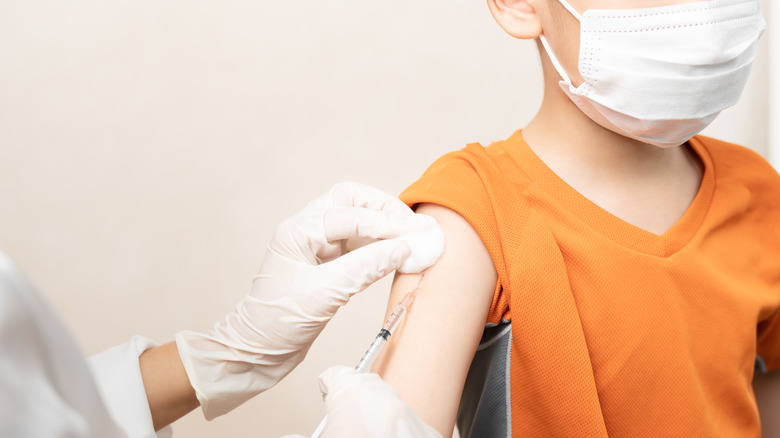Which Age Groups Are Eligible For The New COVID Booster?
A significant portion of the population has been vaccinated against COVID-19. The Centers for Disease Control and Prevention (CDC) reports that almost 226 million people have completed their primary series of vaccine doses, which works out to be about 68% of the population. Approximately 8.8 million children between the ages of five and 11 have received both vaccine doses, which accounts for 31% of that particular group, according to the American Academy of Pediatrics. While almost 111 million people in the United States have received their first COVID-19 booster, per the CDC, these numbers may change now that the U.S. Food and Drug Administration (FDA) has approved authorizations for boosters in younger people.
The FDA announced in a press release that it has amended the emergency use authorizations for the Moderna and Pfizer-BioNTech COVID-19 vaccines to be used as boosters in younger age groups. These shots protect specifically against omicron subvariants BA.4 and BA.5. According to U.S. News & World Report, the BA.5 subvariant is currently responsible for about 79% of all of the COVID cases in the U.S.
The boosters are authorized for younger children
According to the press release, the FDA states that the Moderna booster is authorized for children six years old and older, while the Pfizer vaccine is available for children five and older. Children can get their booster shot at least two months after receiving their primary dose. Those who have severe allergies to any of the ingredients should not receive the vaccines, per the Mayo Clinic.
Dr. Peter Marks, director of the Center for Biologics Evaluation and Research at the FDA stated in the release that because normal activities, such as children returning to school, are now resuming, there is a greater chance of getting exposed to the virus. He added that vaccination remains "the most effective measure to prevent the severe consequences of COVID, including hospitalization and death." Marks also pointed out that while COVID seems to affect children less severely, some are still becoming so sick that they require hospitalization. With this information, he urges parents to consider vaccinating and boosting their children when they become eligible.


